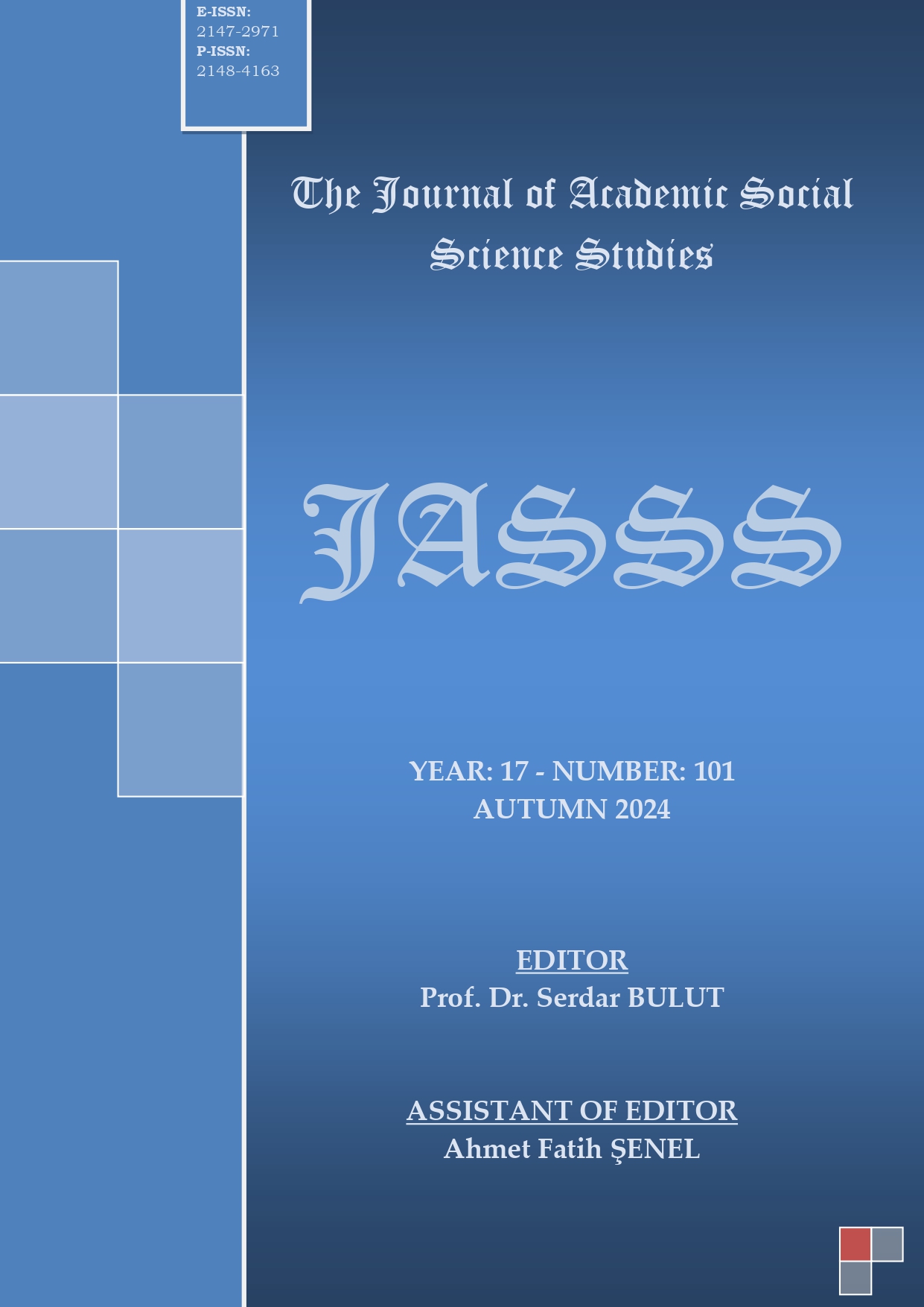Author :
Abstract
Cebr ve tam zıttı olan ihtiyar kavramları insanın özgürlüğü konularında yoğun münakaşalara sebebiyet verdiğini görmekteyiz. Bu kavramlar Kaderiyye ve Cebriyye düşüncelerinin oluşumunda etki eden önemli faktörlerdendir. İhtiyar kavramı, insana ait fiillerinin oluşmasında seçim hürriyetinin bulunmasını ifade etmektedir. Bunun tam karşısında yer alan cebr ise insanlara ait fiillerin oluşmasında kulun seçim hürriyetinin olmaması anlamına gelmektedir. Bu tanımdan hareketle Cebriyye düşüncesi, insanın yaptığı eylemlerde mutlak anlamda hiçbir etkisinin ve tesirinin olmadığını ifade etmektedir. Cebri düşünce aslında insanlık tarihi kadar eski bir olgudur. İslam öncesi “cahiliye” Araplarında da izlerini tespit ettiğimiz cebr düşüncesinin Emevilerin hakimiyetinde olan İslam dünyasına da sirayet ettiğini söyleyebiliriz. Emevi Sultanı Muaviye ile bir kez daha belirmiş olan ‘cebr’ düşüncesi zamanla bir ideoloji haline gelmiştir. Emevi saltanatı ile başlayan ihtiyar/kaderiyye taraftarları ile olan mücadelerinde Cebri düşünce mensupları bazen galip bazen mağlup olsalar da Mihne dönemiyle birlikte uzun zaman süren galibiyeti ellerine geçirmiş olacaklardı. İslamda Cebri düşüncenin merkezi bir anlamda Suriyenin merkezi konumunda olan Şam’dır. İhtiyar taraftarları ise kendilerini daha ziyade Basra’da göstermişlerdir. Kaynaklara baktığımızda Cebr düşüncesini ilk defa Ca’d b.Dirhem’in ele aldığını ve savunduğunu görürüz. Biz bu makalede öncelikle cebr – ihtiyar tartışmalarına açıklık getireceğiz. Sonrasında cebri düşünceden ve cebri düşüncenin nerede oluşum gösterip hangi bölgelerde yayıldığına değineceğiz. En son ise Ca’d b. Dirhem ve karşıt görüşe sahip, ihtiyar taraftarı olan Gaylan ed-Dımeşki’den bahsedeceğiz.
Keywords
Abstract
We see that the concepts of jabr and its opposite, ihtiyar, have caused intense debates about human freedom. These concepts are among the important factors affecting the formation of the ideas of qadariyya and jabriyya. The concept of ihtiyar refers to the freedom of choice in the formation of human actions. The concept of jabr, which is its opposite, means that the servant does not have freedom of choice in the formation of human actions. Based on this definition, the Jabriyya thought states that human beings have no influence and effect on their actions in absolute terms. Jabriyya thought is actually a situation that has exhausted the human mind since the creation of man. We can say that the traces of the understanding of ‘dehr’, which we see in the pre-Islamic ignorant Arabs, also spread to the Islamic world dominated by the Umayyads. The idea of ‘jabr’, which reappeared with the Umayyad caliph Mu'awiya, became an ideology over time, and although it was sometimes victorious and sometimes defeated in the struggles with the opponents of the old man in this period, it would take the long-lasting victory with the Mihne period. The centre of the Algebraic thought in Islam is Damascus, which is the centre of Syria. On the other hand, the followers of Ihtiyar were formed in Basra. When we look at the sources, we see that the idea of jabr was first discussed and defended by Ca'd b.Dirhem. In this article, we will first clarify the discussions on jabr and ihtiyar. Then we will talk about the idea of compulsion and where the idea of compulsion was formed and in which regions it spread. Finally, we will talk about Ca'd b. Dirhem and Gaylan al-Dimashki, who had the opposite view and was in favour of ihtiyar.





